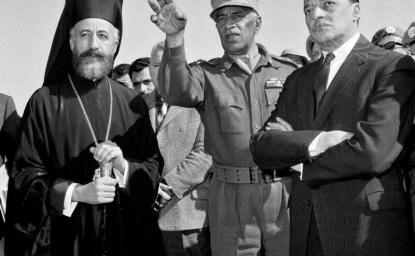The Cold War International History Project, together with the OSCE Mission in Serbia and the Zikic Foundation are organizing the international conference "From Helsinki to Belgrade. The First CSCE Follow-up Meeting in Belgrade 1977-1978."
The conference will be held in the Sava Center in Belgrade, Serbia, March 8-10.
Conference Description
In the beginning of the 1970s, the two blocks of states led by the U.S. and the USSR agreed on a European Security Conference as a result of the military détente between the two Superpowers. The Conference was held in Helsinki, Finland, from 1973 to 1975, and presented a new approach in developing a broader confidence between the Superpowers. Conference on Security and Cooperation in Europe – CSCE (Helsinki, 1973), after two years of negotiations, was concluded in 1975 when 35 European states and the US and Canada signed the Helsinki Final Act. The provisions of the Helsinki Final Act were viewed as essential for position of détente in Europe. Topics opened at the Helsinki Conference were presented within the three baskets: Basket I Security; Basket II Economic, scientific, technological, and environmental cooperation; Basket III Human and civil rights, cultural and information exchange. The first CSCE follow-up meeting was held in Belgrade from October 4, 1977 to March 8, 1978, and was followed by several other follow-up conferences. The main topics discussed at the Belgrade follow-up meeting were especially human and minorities rights issues. Compared to the overall constructiveness of the first CSCE in Helsinki, its follow-up meetings, especially the Belgrade one, were accompanied with clashes between Eastern and Western block of states. CSCE became a forum of public debate between protagonists of the Cold War – the US and the USSR.
To read the conference program, visit the conference website or download the program below.
Related Links

Cold War International History Project
The Cold War International History Project supports the full and prompt release of historical materials by governments on all sides of the Cold War. Read more




